Related Research Articles
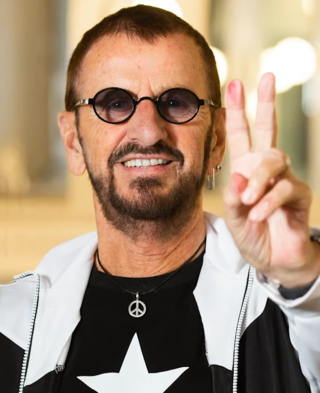
Sir Richard Starkey, known professionally as Ringo Starr, is an English musician, songwriter and actor who achieved international fame as the drummer for the Beatles. Starr occasionally sang lead vocals with the group, usually for one song on each album, including "Yellow Submarine" and "With a Little Help from My Friends". He also wrote and sang the Beatles songs "Don't Pass Me By" and "Octopus's Garden", and is credited as a co-writer of four others.
The Beatles Anthology is a multimedia retrospective project consisting of a television documentary, a three-volume set of double albums, and a book describing the history of the Beatles. Beatles members Paul McCartney, George Harrison and Ringo Starr participated in the making of the works, which are sometimes referred to collectively as the Anthology project, while John Lennon appears in archival interviews.
The Great American Songbook is the loosely defined canon of significant 20th-century American jazz standards, popular songs, and show tunes.
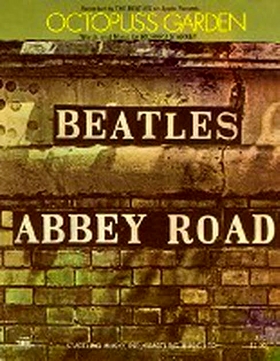
"Octopus's Garden" is a song by the English rock band the Beatles, written and sung by Ringo Starr, from their 1969 album Abbey Road. George Harrison, who assisted Starr with the song, commented: "'Octopus's Garden' is Ringo's song. It's only the second song Ringo wrote, and it's lovely." He added that the song gets very deep into the listener's consciousness "because it's so peaceful. I suppose Ringo is writing cosmic songs these days without even realising it." It was the last song released by the Beatles featuring Starr on lead vocals.
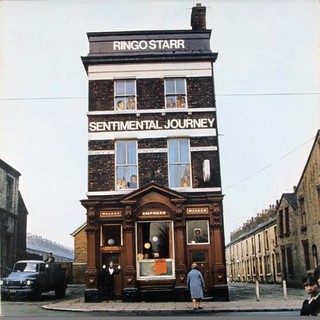
Sentimental Journey is the debut solo album by English rock musician Ringo Starr. It was released by Apple Records in March 1970 as the Beatles were breaking up. The album is a collection of pre-rock 'n' roll standards that Starr recalled from his childhood in Liverpool. As a departure from the experimental quality that had characterised solo LPs by George Harrison and John Lennon since 1968, it was the first studio album by an individual Beatle to embrace a popular music form.

"Honey Don't" is a song written by Carl Perkins, originally released on January 1, 1956 as the B-side of the "Blue Suede Shoes" single, Sun 234. Both songs became rockabilly classics. Bill Dahl of Allmusic praised the song saying, "'Honey Don't' actually outclasses its more celebrated platter-mate in some ways." It has been covered by more than 20 other artists, including the Beatles, Ronnie Hawkins and Johnny Rivers. The song has appeared in films such as The Prince of Tides, Diner, and Perfect Sisters.
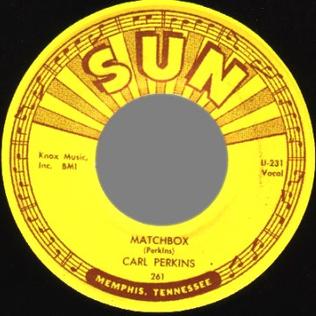
"Matchbox" is a song written and recorded by Carl Perkins and released in 1957. Blind Lemon Jefferson wrote and recorded a song entitled "Match Box Blues" in 1927, which is musically different but which contains some lyric phrases in common.

Vertical Man is the eleventh studio album by Ringo Starr, issued in 1998. The album served as Starr's attempt at a commercial comeback following the success of The Beatles Anthology project. Starr enlisted the help of many of his musician friends in making Vertical Man, including Scott Weiland, Brian Wilson, Alanis Morissette, Ozzy Osbourne, Tom Petty, Joe Walsh, Timothy B. Schmit, Steven Tyler, and his former Beatles bandmates Paul McCartney and George Harrison. Beatles engineer Geoff Emerick mixed the tracks, and Starr and Mark Hudson served as producers.

Maureen Starkey Tigrett, also known as Mo Starkey, was a hairdresser from Liverpool, England, best known as the first wife of Ringo Starr, the Beatles' drummer. When she was a trainee hairdresser in Liverpool, she met him at the Cavern Club, where the Beatles were playing. Starr proposed marriage at the Ad Lib Club in London on 20 January 1965. They married at the Caxton Hall Register Office, London, in 1965, and divorced in 1975.

"It Don't Come Easy" is a song by English rock musician Ringo Starr that was released as a non-album single in April 1971. It was produced by Starr's former Beatles bandmate George Harrison, who also helped write the song, although only Starr is credited. Recording for the track took place in March 1970 at Trident Studios in London, with overdubs added in October. Starr and Harrison performed the song together in August 1971 at Harrison's Concert for Bangladesh shows in New York City, a recording from which was released on the live album of the same name. Starr has continued to perform it in subsequent decades with his All-Starr Band.
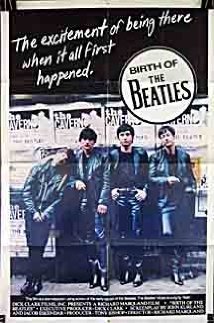
Birth of the Beatles is a 1979 American biographical film, produced by Dick Clark Productions and directed by Richard Marquand. The film was released into cinemas worldwide, except in the United States, where it was shown as a TV film on ABC. The film focuses on the early history of the Beatles. It was released nine years after the announced break-up of the Beatles themselves, and is the only Beatles biopic to be made while John Lennon was still alive. Pete Best, the Beatles' original drummer, served as a technical advisor for the production.

Ringo the 4th is the sixth studio album by English musician Ringo Starr, released on 20 September 1977. Its title is sometimes ascribed to him being the fourth member of the Beatles. Others have suggested that it is his fourth mainstream album, which excludes his Great American Songbook homage, Sentimental Journey, and his country-western foray, Beaucoups of Blues. However, Ringo the 4th is a dance-oriented record, crafted for him by his Atlantic Records producer, Arif Mardin.

Stop and Smell the Roses is the eighth studio album by English rock musician Ringo Starr. Released in October 1981, it followed the twin commercial failures of Ringo the 4th (1977) and Bad Boy (1978). The album includes the hit single "Wrack My Brain", written and produced by George Harrison, but otherwise failed to find commercial success. It also includes contributions from Paul McCartney, Harry Nilsson, Ronnie Wood and Stephen Stills.

Time Takes Time is the tenth studio album by Ringo Starr. His first studio album since 1983's Old Wave, it followed a successful 1989–90 world tour with his first All-Starr Band. Released in 1992, Time Takes Time was a critically-acclaimed comeback album, and featured several celebrity guests including Brian Wilson, Harry Nilsson and Electric Light Orchestra front-man Jeff Lynne.

"Boys" is a song written by Luther Dixon and Wes Farrell, originally recorded by the Shirelles at Bell Sound Studios in New York City and released as the B-side of their "Will You Love Me Tomorrow" single in November 1960. It was recorded more than two years later by the Beatles and included on their debut album in the United Kingdom, Please Please Me (1963).

The Beatles, also referred to as The Beatles Cartoon, is an animated television series featuring representations of the popular English rock band of the same name. It was originally broadcast from 1965 to 1967 on ABC in the United States, with reruns airing until 1969.

"Christmas Time (Is Here Again)" is a Christmas song by the English rock band the Beatles, originally recorded for their fifth fan club Christmas record, Christmas Time Is Here Again! (1967). One of the few Beatles songs credited to all four members of the band, it consists of a blues based backing track as well as double-tracked vocals sung by them, George Martin and Victor Spinetti. The lyrics are mostly made up of the song's title refrain, repeated across nine verses.
The Beatles 1964 world tour was the Beatles' first world tour, launched after their 1964 UK tour. The reception was enthusiastic, with The Spectator describing it as "hysterical". It was followed by their subsequent North American tour in August of that year.

Around the Beatles was a 1964 television special featuring the Beatles, produced by Jack Good for ITV/Rediffusion London. It was taped in Wembley Park Studios in London on 28 April 1964, and broadcast internationally, with its initial airing on 6 May 1964, and in the US on the ABC network on 15 November. The show featured other performers as well, with the Beatles providing backing vocals for some of them. The music had been pre-recorded at London's IBC Studios on 19 April 1964, and the Beatles mimed during the show.

Everyday Chemistry is a remix album that was made available as a free digital download on 9 September 2009. The album was released along with a story of anonymous authorship. It mashes up various songs from the Beatles' individual solo careers, including tracks from 27 albums. The album portrays itself as being taken from an alternate universe in which the Beatles had not broken up.
References
- ↑ Harry, Bill (2004). The Ringo Starr Encyclopedia. London: Virgin Books. p. 130. ISBN 9780753508435.